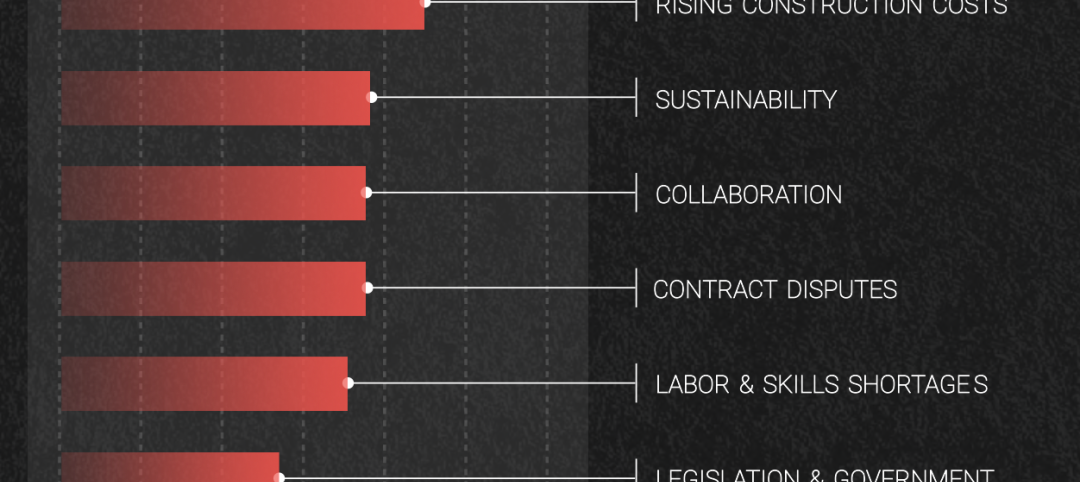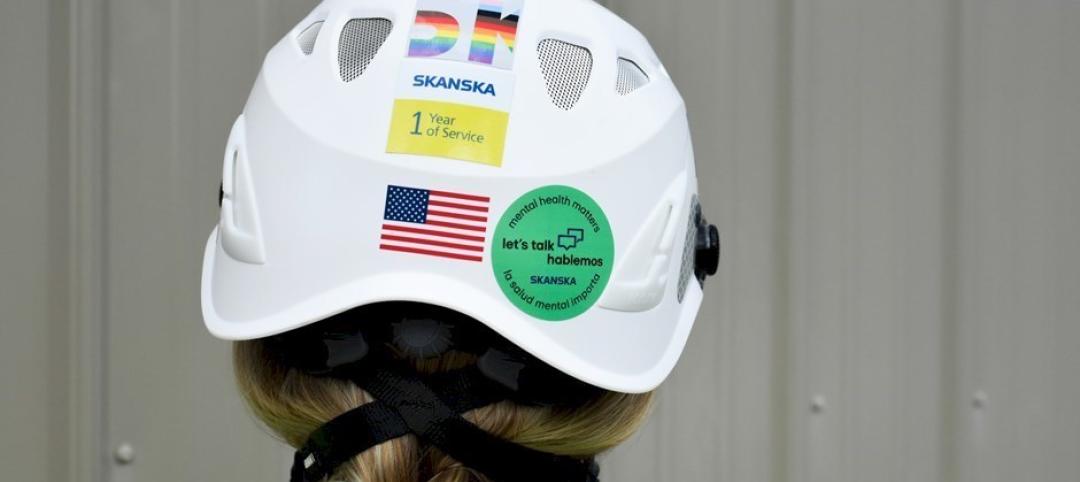The American Institute of Architects (AIA) today announced the publication of a white paper on the nation’s $3 trillion public infrastructure crisis and how public private partnerships (P3) offer a possible solution.
The AIA also announced that it was co-sponsoring with Governing Magazine the May 12 Summit on Infrastructure & Public Private Partnerships, a conference geared for state and local government officials tasked with updating their infrastructure, but who lack the means to do so.
“Building-Up: How States Utilize Public-Private Partnerships for Social & Vertical Infrastructure,” chronicles the public infrastructure crisis facing the United States and how states have found themselves facing sizeable budgetary shortfalls amid a stock of aging highways, public buildings and water distribution systems.
Through case studies, the white paper cites examples of innovative solutions used by the states and localities to combat this crisis while capitalizing on the P3 model for a variety of infrastructure needs. It includes a map highlighting a number of the current non-transportation P3s from around the country.
To help government optimize the value of P3 and its long-term quality implications, the AIA is co-sponsoring with Governing Magazine the May 12 Summit on Infrastructure & Public Private Partnerships (P3), a conference geared for state and local government officials tasked with updating their infrastructure.
A recent study by Governing Magazine found that half of all state and local leaders surveyed believe that a lack of infrastructure investment is their most significant financial problem. The summit will address the needs of local officials contemplating major infrastructure projects and who are trying to decide if a P3 is suitable for their jurisdictions.
Among the topics to be addressed:
- Evaluating, pricing and managing risk
- Defining clear project goals and cost projections
- Insights from industry experts on life-cycle cost considerations and private sector equity
- Case Studies - Public sector leaders who have implemented P3 will share lessons learned and tips for success
While P3 is a financing concept gaining popularity worldwide, it is under-utilized in the U.S., relative to other countries, according to Governing. The single biggest barrier is a lack of public-sector expertise in negotiating what can be complex, long-term agreements that assume risk on behalf of taxpayers. This Summit will share best practices, lessons learned and case studies that will help governments negotiate successful agreements and common pitfalls.
Related Stories
Market Data | Jul 24, 2023
Leading economists call for 2% increase in building construction spending in 2024
Following a 19.7% surge in spending for commercial, institutional, and industrial buildings in 2023, leading construction industry economists expect spending growth to come back to earth in 2024, according to the July 2023 AIA Consensus Construction Forecast Panel.
Codes and Standards | Jul 17, 2023
Outdated federal rainfall analysis impacting infrastructure projects, flood insurance
Severe rainstorms, sometimes described as “atmospheric rivers” or “torrential thunderstorms,” are making the concept of a “1-in-100-year flood event” obsolete, according to a report from First Street Foundation, an organization focused on weather risk research.
Multifamily Housing | Jul 13, 2023
Walkable neighborhoods encourage stronger sense of community
Adults who live in walkable neighborhoods are more likely to interact with their neighbors and have a stronger sense of community than people who live in car-dependent communities, according to a report by the Herbert Wertheim School of Public Health and Human Longevity Science at University of California San Diego.
Multifamily Housing | Jun 29, 2023
5 ways to rethink the future of multifamily development and design
The Gensler Research Institute’s investigation into the residential experience indicates a need for fresh perspectives on residential design and development, challenging norms, and raising the bar.
Apartments | Jun 27, 2023
Average U.S. apartment rent reached all-time high in May, at $1,716
Multifamily rents continued to increase through the first half of 2023, despite challenges for the sector and continuing economic uncertainty. But job growth has remained robust and new households keep forming, creating apartment demand and ongoing rent growth. The average U.S. apartment rent reached an all-time high of $1,716 in May.
Contractors | Jun 26, 2023
Most top U.S. contractors rarely deliver projects on time: new study
About 63% of leading U.S. contractors are delivering projects out of schedule, according to a survey of over 300 C-suite executives and owners in the construction industry by XYZ Reality. The study implies that the industry is struggling with significant backlogs due, in part, to avoidable defects, scan, and rework.
Industry Research | Jun 15, 2023
Exurbs and emerging suburbs having fastest population growth, says Cushman & Wakefield
Recently released county and metro-level population growth data by the U.S. Census Bureau shows that the fastest growing areas are found in exurbs and emerging suburbs.
Contractors | Jun 13, 2023
The average U.S. contractor has 8.9 months worth of construction work in the pipeline, as of May 2023
Associated Builders and Contractors reported that its Construction Backlog Indicator remained unchanged at 8.9 months in May, according to an ABC member survey conducted May 20 to June 7. The reading is 0.1 months lower than in May 2022. Backlog in the infrastructure category ticked up again and has now returned to May 2022 levels. On a regional basis, backlog increased in every region but the Northeast.
Industry Research | Jun 13, 2023
Two new surveys track how the construction industry, in the U.S. and globally, is navigating market disruption and volatility
The surveys, conducted by XYZ Reality and KPMG International, found greater willingness to embrace technology, workplace diversity, and ESG precepts.
| Jun 5, 2023
Communication is the key to AEC firms’ mental health programs and training
The core of recent awareness efforts—and their greatest challenge—is getting workers to come forward and share stories.

















